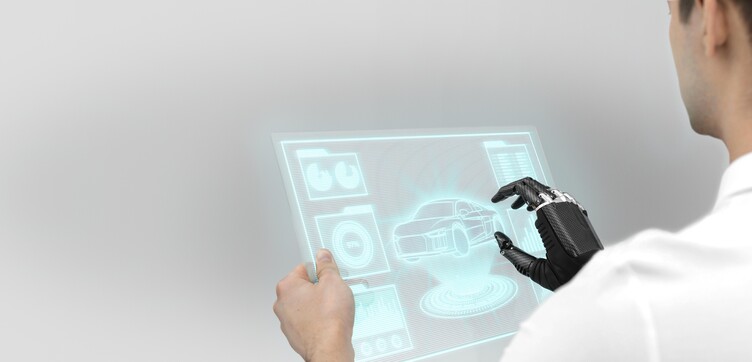
Artificial intelligence (AI) has revolutionized the automotive industry, which has led to improving various aspects of the car buying experience. This blog will explore how AI enhances the car buying experience and provide examples of successful AI implementations in the automotive industry.
The process of purchasing a car can be overwhelming and time-consuming, with customers struggling to process the vast amount of information available. AI has been deployed to make the car buying process more efficient, personalized, and enjoyable for customers.
According to a survey by Capgemini, 54% of car buyers are willing to use AI to personalize their car buying experience, and 44% of customers would consider purchasing a car from an online platform that uses AI to recommend cars based on their preferences.
These are among the most successful AI implementations in the automotive industry. AI-powered assistants guide customers through car buying, from browsing cars to purchasing. They can answer questions, provide recommendations, and assist customers in finding the perfect car to fit their needs. Mercedes-Benz’s “Ask Mercedes” virtual assistant is a successful example of an AI-powered virtual assistant in the automotive industry. Launched in 2018, it has answered over 5.5 million customer inquiries, providing personalized recommendations based on customer preferences.
Chatbots are another AI-powered tool automotive companies use to enhance the car buying experience. These chatbots provide assistance and recommendations to customers, operating 24/7, making it convenient for customers to get answers to their queries without requiring human interaction. “FordPass,” Ford’s chatbot, available on Facebook Messenger, has helped over 4.4 million customers since its launch in 2018.
Car Configurators allow customers to customize their car based on personal preferences. AI-powered car configurators provide personalized recommendations on colors, trims, and features based on customer preferences. Porsche’s car configurator is an example of the successful implementation of AI-powered car configurators. It uses AI to suggest different colors and materials and has increased online leads by 50%.
AI-powered recommendations help customers find the perfect car based on their preferences and needs. These recommendations are based on customer search history, previous purchases, and other data points.
Carvana’s online used car dealership uses AI-powered recommendations to suggest cars based on customers’ preferences and search history. The website also provides a 360-degree view of the car, allowing customers to explore the car’s features and design.
Another AI implementation that enhances the car buying experience considerably is AI-powered image recognition. Image recognition helps customers find the perfect car by matching their preferences with images of cars.
AI-powered predictive analytics is another implementation that supplements the car buying experience. Predictive analytics helps customers find the perfect car by predicting their future needs . These predictions are based on customer search history, previous purchases, and other relevant data points.
Artificial intelligence (AI) has revolutionized the way car dealership’s function. With the help of AI-powered tools, dealerships can now streamline their processes, enhance customer experience, and boost sales. One such intelligent tool is Cognitgo’s RObot, which automates the car dealership process.
RObot allows dealerships to identify potential selling or trade-in opportunities by scanning their service drive. Additionally, RObot engages with customers who are already in the service drive, building a trustworthy relationship that can drive sales and build inventory. By reaching out to customers at the opportune moment before competitors do, RObot helps dealerships stay ahead of the game.
In a world where customer experience reigns supreme, AI has been a game-changer for the automotive industry. From helping customers find their dream car to streamlining the car buying process, AI-powered solutions have made significant strides in providing customers with a personalized and seamless experience.
AI is not just a trend but a technology that is here to stay. Therefore, it’s high time that car dealerships hop on board the AI train and embrace its numerous benefits.
At this point, it’s crystal clear that the future of the automotive industry is heavily reliant on AI, and those who don’t adapt risk falling behind. So, if you want to take your car dealership to the next level, consider implementing AI-powered solutions to improve customer experience and streamline operations.
